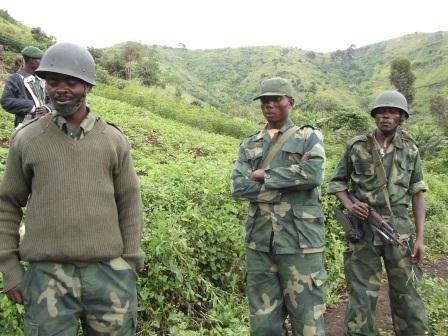
GOMA, Democratic Republic of Congo — A semblance of normal life is returning to Goma, with a few banks, shops, and schools reopening. But despite the presence of 600 policemen and a battalion of government forces who deployed to the city following M23’s withdrawal, people are still petrified that M23 might return. Ahead of talks with the Congolese government, the rebels have continued to posture by threatening to retake Goma if their demands are not met.
The M23 withdrawal ended an 11-day occupation of the city and came after a peace accord negotiated by the International Conference on the Great Lakes Region that set the stage for talks. Hundreds of M23 troops pulled out of the city late Saturday, with one company of troops remaining at the Goma airport alongside Congolese government troops and U.N. peacekeepers.
The seizure of Goma is the most recent advancement of the M23 rebel group, marking eight months since the group’s mutiny in April. Among other armed groups in the region—currently estimated to number more than 25—M23 has captured the most attention and is reported to be heavily supported by neighboring Rwanda and Uganda. Both countries have repeatedly denied allegations of involvement with the group, even as new evidence emerges.
Despite the return of Congolese soldiers and ongoing presence of U.N. peacekeepers in Goma, security and safety remain a concern for civilians in the region. The fighting which has already displaced hundreds of thousands left 130,000 newly displaced people, according to U.N. figures. There have also been reports of looting and rape as the M23 rebels retreated to a buffer zone 20 kilometers outside the city.
As international pressure mounts on regional leaders to cease external support to M23 and broker peace in the region; Rwanda and to a lesser extent Uganda are facing mounting repercussions for their support to M23. The U.K, Germans, E.U, and the U.S. have suspended some military support and aid to both Rwanda and Uganda. New evidence from a U.N. report leaked to The New York Times on November 30 could also add to the existing suspensions. The report, written by the U.N. Group of Experts, provides additional evidence of Rwandan and Ugandan support to M23, stating that elements within those governments have “created, equipped, trained, advised, reinforced and directly commanded the M23 rebellion." Further, the report describes “direct [Rwandan Defense Forces] support during combat on the frontlines” during the M23 offensive on Goma. Images embedded in the report show rebels wearing new uniforms that closely resemble those of the Rwandan Defense Forces.
Negotiations between M23 and the Congolese government are set to start this week, with Uganda acting as a mediator.
Photo: Congolese army soldiers in Sake (Enough Team)

